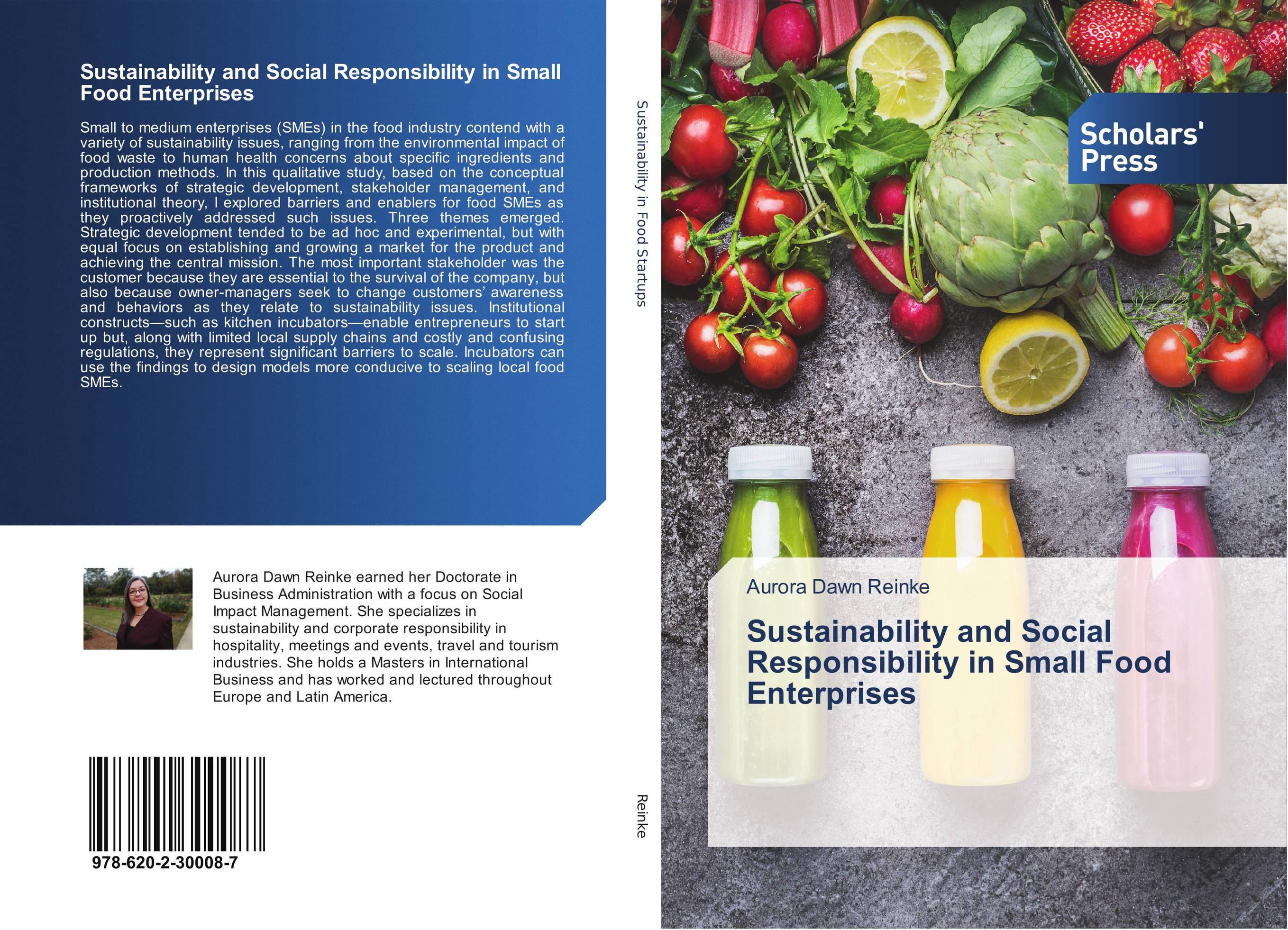| Поиск по каталогу |
|
(строгое соответствие)
|
- Профессиональная
- Научно-популярная
- Художественная
- Публицистика
- Детская
- Искусство
- Хобби, семья, дом
- Спорт
- Путеводители
- Блокноты, тетради, открытки
Sustainability and Social Responsibility in Small Food Enterprises.

В наличии
| Местонахождение: Алматы | Состояние экземпляра: новый |

Бумажная
версия
версия
Автор: Aurora Dawn Reinke
ISBN: 9786202300087
Год издания: 2017
Формат книги: 60×90/16 (145×215 мм)
Количество страниц: 140
Издательство: Scholars' Press
Цена: 39602 тг
Положить в корзину
Позиции в рубрикаторе
Сферы деятельности:Код товара: 176111
| Способы доставки в город Алматы * комплектация (срок до отгрузки) не более 2 рабочих дней |
| Самовывоз из города Алматы (пункты самовывоза партнёра CDEK) |
| Курьерская доставка CDEK из города Москва |
| Доставка Почтой России из города Москва |
Аннотация: Small to medium enterprises (SMEs) in the food industry contend with a variety of sustainability issues, ranging from the environmental impact of food waste to human health concerns about specific ingredients and production methods. In this qualitative study, based on the conceptual frameworks of strategic development, stakeholder management, and institutional theory, I explored barriers and enablers for food SMEs as they proactively addressed such issues. Three themes emerged. Strategic development tended to be ad hoc and experimental, but with equal focus on establishing and growing a market for the product and achieving the central mission. The most important stakeholder was the customer because they are essential to the survival of the company, but also because owner-managers seek to change customers’ awareness and behaviors as they relate to sustainability issues. Institutional constructs—such as kitchen incubators—enable entrepreneurs to start up but, along with limited local supply chains and costly and confusing regulations, they represent significant barriers to scale. Incubators can use the findings to design models more conducive to scaling local food SMEs.
Ключевые слова: entrepreneurship, Social Entrepreneur, startups, sustainability, food startups, incubators, food waste



